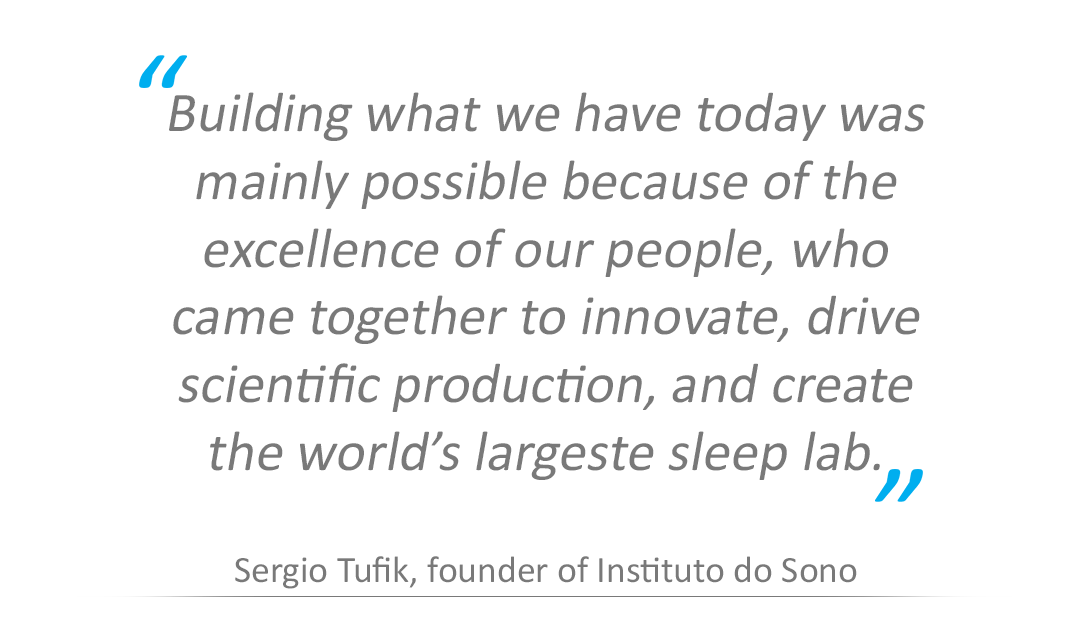 Humor, memory, and even appetite issues. What are the impacts of a poor night’s sleep on our health? Today, information on Sleep Medicine and the advances of science are more disseminated, with countless papers and research projects available to those seeking data, diagnosis and treatment. But it has not always been this way.
Humor, memory, and even appetite issues. What are the impacts of a poor night’s sleep on our health? Today, information on Sleep Medicine and the advances of science are more disseminated, with countless papers and research projects available to those seeking data, diagnosis and treatment. But it has not always been this way.
In the 1970s, when Professor Sergio Tufik started dedicating his time to this topic, few sleep studies and material were available.
The objective of his research was initially linked to the effects of sleep deprivation on the activity of neurotransmitters, particularly dopamine.
The publication of his Doctoral thesis was the first big step towards advances in the field, and the results contributed to greater knowledge on how the lack of sleep causes brain and behavioral changes.

The study was a pioneer in the field, and it was the professor’s desire for change that boosted the evolution of Sleep Science in Brazil. Since then, the group of researchers has grown, different lines of research have been developed, and Instituto do Sono was founded.
The Institute has one of the largest and most diverse groups of researchers in the world working to understand sleep-related phenomena and their clinical applications, helping in diagnosis and treatment. The team develops clinical and pre-clinical projects in Sleep Biology and Medicine, intersecting with other fields of Medicine and Health Sciences.
 Research transforms the world
Research transforms the worldThe Sleep Institute is a leader in the industry and features as a leader of scientific publications in the Web of Science database. With multidisciplinary investigations and support for renowned researchers, it has transformed the reality of Sleep Medicine. It has published over 1,200 scientific papers to this day and received countless national and international awards.
 Among various important projects developed over the years, the Sleep Institute is responsible for EPISONO, the world’s largest epidemiological study, which investigates the prevalence of sleep disorders and various associated diseases. The Institute is also recognized for developing studies in various lines of research, such as sleep deprivation and disorders, circadian rhythm disorders, women’s sleep, sexuality, and cardiovascular and metabolic diseases.
Among various important projects developed over the years, the Sleep Institute is responsible for EPISONO, the world’s largest epidemiological study, which investigates the prevalence of sleep disorders and various associated diseases. The Institute is also recognized for developing studies in various lines of research, such as sleep deprivation and disorders, circadian rhythm disorders, women’s sleep, sexuality, and cardiovascular and metabolic diseases.
The findings of these studies, which are frequently unprecedented, are presented at symposiums and congresses around the globe by representatives of Instituto do Sono, helping to build knowledge and improve people’s sleep quality.
Researchers